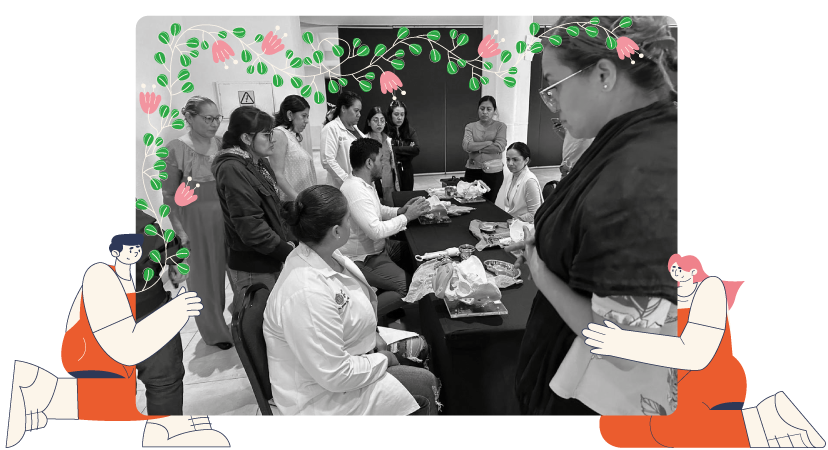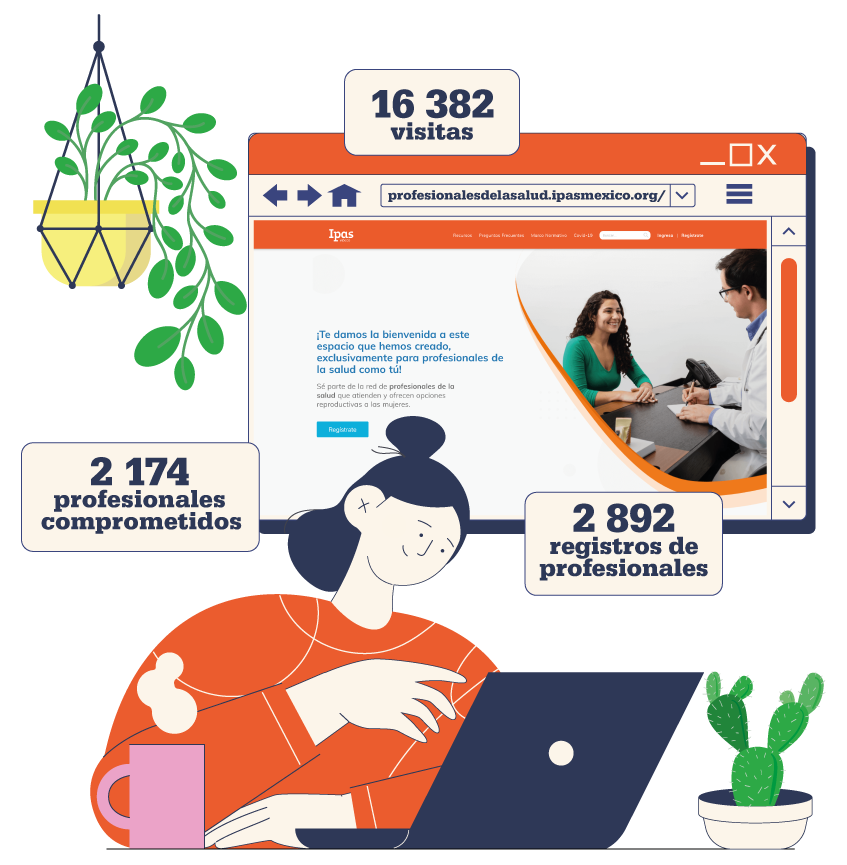Health workforce and service delivery
A truly sustainable abortion ecosystem requires more than just services—it demands care that is accessible, rights-based, and rooted in compassion. This petal highlights the importance of having a well trained, adequately resourced health workforce that follows evidence-based clinical guidelines and delivers carefree from stigma and discrimination. Safe abortion for all can only be a reality when governments ensure that health systems are equipped, empowered, and responsive to the experiences, priorities, and needs of the communities they serve. In 2024:
9. We designed the Guide for building resilience for people who accompany and provide abortion services, in order to support coping skills in the face of adverse experiences in the provision of services and accompaniment of safe abortion in contexts of risk, persecution and criminalization. This pilot workshop was attended by medical personnel and escorts from several Mexican states, as well as a representation of escorts from Central America. Attendees shared the challenges they face in providing and accompanying abortion services, as well as putting into practice and evaluating the tools and activities proposed in the Guide, which will become an input for countries in the region and other continents through Ipas nodes.
10. We collaborated in the preparation of the four quick reference booklets of the Protocol for the Comprehensive Care of Persons with the Right to Voluntary and Legal Termination of Pregnancy in Argentina.
11. We supported the University of El Salvador in the development of module 13: "Sexual and Reproductive Health Counseling" of the Master's program in Sexual and Reproductive Health Education and Promotion. In addition, an expert from Ipas LAC provided teaching support for this module.
12. We took part in the Regional Meeting on Abortion and Disability, organized by CLACAI and held in Lima, Peru, in order to visualize within our processes the specific needs of persons with disabilities seeking access to abortion.




